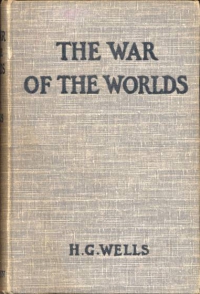The Book of Mirrors by E.O. Chirovici
 Wednesday, April 19, 2017 at 10:26AM
Wednesday, April 19, 2017 at 10:26AM 
Published in Great Britain in January 2017; published by Atria/Emily Bestler Books on February 21, 2017
A literary agent, Peter Katz, receives a partial manuscript of a nonfiction work describing the author’s experiences at Princeton in 1987. The manuscript concerns a young man named Richard Flynn who wants to be a writer and whose new roommate, an attractive young woman named Laura Baines, is studying psychology. Laura is apparently working on a secret project with Professor Joseph Wieder. Flynn gets a job cataloguing the professor’s library and promptly falls in love with Laura, but things take an odd turn when, shortly after Laura seems to pull away from both Wieder and Flynn, Wieder is murdered.
Katz is intrigued by the opening chapters and wants to read the entire manuscript, but contacting Flynn proves to be difficult, and it seems like a story to which Katz will never learn the ending. From the reader’s perspective, however, the story is just beginning. It continues with the introduction of John Keller, an unemployed writer/reporter who agrees to investigate Flynn’s story and to write a new version of the book if the original manuscript can’t be found.
Keller interviews sources and hears conflicting accounts of pretty much every fact that pertains to Flynn, Baines, Wieder, and various others who were involved with their lives. The stories are so dramatically different that Keller and the reader are challenged to determine who (if anyone) is telling the truth, what motivations they might have for lying, and (most importantly) who actually murdered Wieder.
The story is told from four perspectives: Katz, Flynn (who speaks through his partial manuscript), Keller, and Roy Freeman, a retired detective who worked on the unsolved murder. While each perspective is written in the same voice, the consistent voice arguably supports the continuity of the story. More importantly, the changing perspectives on the investigation keep the story fresh as the plot advances.
The plot has enough complexity to keep the reader guessing but never becomes convoluted. I like the way important aspects of the mystery are resolved while the reader is left wondering about others. The elusive nature of truth is the novel’s theme, and the plot illuminate the theme in clever ways.
The story does not bog down with unnecessary detail and the pace is appropriate to a literary mystery … quick enough to keep the reader interested, slow enough to give the reader time to chew on the conflicting versions of the facts. Characters have carefully defined personalities and E.O. Chirovici’s writing style is smooth. A Book of Mirrors is a solid mystery and the beginning of a promising career.
RECOMMENDED


